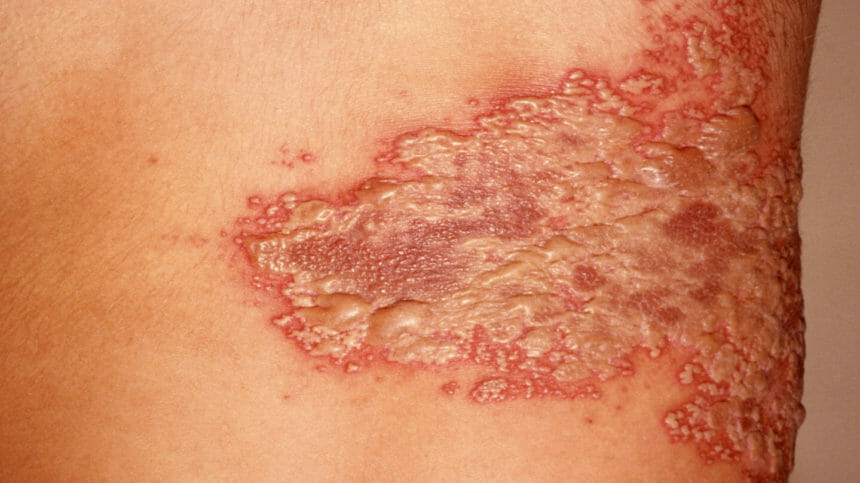
Shingles rash; Credit: Getty Images
Older adults with a first-time COVID-19 diagnosis are 15% more likely to develop shingles than their peers who have never been diagnosed with the disease, a study supported by vaccine-maker GlaxoSmithKline has found.
The risk is even higher — at 21% — for older adults hospitalized with COVID-19, reported investigators for the company, which makes the shingles vaccine Shingrix.
The researchers used U.S. data, excluding anyone who had been vaccinated for either disease. They found that the risk of shingles, also known as herpes zoster, remained elevated for up to six months after a COVID-19 diagnosis for patients aged 50 years and older. Notably, when analyzing risk by age group, the elevated risk of shingles was statistically higher in only the 50 to 64-year-old group. The risk was present, but not statistically significant, among patients older than 64.
The study is the first to show epidemiological evidence linking the two diseases, the researchers reported. Some have theorized that the immune dysfunction caused by SARS-CoV-2 infection may trigger latent herpes zoster, a virus that initially causes chickenpox.
Latent herpes zoster in those who have had chickenpox can re-emerge as shingles in older age when the immune system naturally weakens. It’s possible that COVID-19 makes this more likely, the researchers wrote.
“Healthcare professionals should consider that COVID-19 may be a risk factor for herpes zoster,” the researchers said. “As herpes zoster is a vaccine-preventable disease, maintaining recommended herpes zoster vaccination in [adults 50 years and older] may help reduce the herpes zoster burden during the pandemic,” they concluded.
Shingles is often accompanied by a painful rash and sometimes leads to lasting nerve damage.
The findings were published in the journal Open Forum Infectious Diseases.
Related articles:
Can mRNA tech make a better shingles shot? Vaccine makers plan to find out
Shingles vaccine awareness may prevent flu shot avoidance next year, docs say




